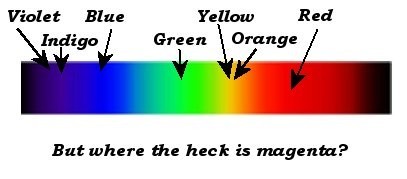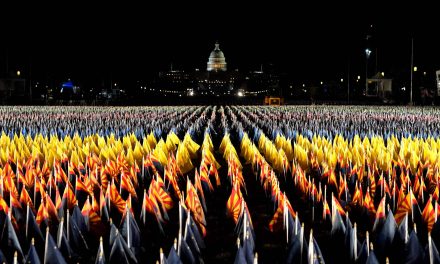Over at Daily Theology, Brad Rothrock offers a critique of what he calls the “post-partisan” mindset, and in particular of the editorial policy laid out by new editor of America Matt Malone, S.J. As a succinct statement of the post-partisan mindset, Rothrock quotes Malone from an interview in the Washington Post, following up on the magazine’s new policies:
It’s not simply that terms like ‘left’ and ‘right’ are inaccurate, it’s that they are counterproductive. There’s a real unity of Catholics. Any language that would oppose one part of the body to the other is inappropriate. We’re a communion. We’re, by definition, one.
By my own reckoning, Rothrock’s criticism consists in five main points: 1) Political labels are descriptive, and pretending otherwise obfuscates rather than moving discussion forward; 2) It is a mistake to believe that it is labels that create conflict rather than the underlying political differences that the labels merely describe; 3) It is ultimately more helpful to acknowledge differences within the Catholic Church than to avoid them by avoiding “divisive” labels; 4) Avoiding political labels in a Catholic context ignores the intrinsic connection between faith and public life and risks privatizing religion; 5) Our theological views arise from a specific social, political, and economic context.
While there is much that is true in Rothrock’s post, it seems to me that in its critique of the Catholic “post-partisan” mindset, it conflates three distinct phenomena. First, some Catholics are distressed at the priority given by Catholics to partisan political identity over ecclesial identity (this viewpoint has been ably expressed, for example, by CMT’s Jana Bennett, here, here, and in her response to Malone’s editorial here). Second, in a complaint as old as time, many Catholics feel politically homeless in the United States, as neither party, and neither contemporary liberalism nor conservatism, represent the full breadth of Catholic social teaching. And third, in the broader political discourse, individuals and movements such as No Labels have expressed dissatisfaction with the level of partisanship in the U.S., not so much because of the inadequacy of the ideologies themselves but because partisan identity is hindering the development of real solutions to our country’s problems (for example, No Labels’ web site states: “We are a community of proud liberals, proud conservatives and everything in between who are united by the conviction that people with different beliefs really can set aside the labels and come together to solve problems.”).
The problem with Rothrock’s critique is that while Malone’s policy about terms such as “liberal,” “conservative,” “left,” and “right” primarily reflects the first perspective outlined above, while also touching on the second, Rothrock’s critique is aimed primarily at the third. Rothrock focuses primarily on Malone’s Washington Post interview, yet the interview itself was a follow up on his earlier editorial, in which Malone is clear that “America will no longer use the terms ‘liberal,’ ‘conservative’ or ‘moderate’ when referring to our fellow Catholics in an ecclesiastical context” (emphasis mine). In other words, if I am understanding Malone correctly, his objection is not to the use of political labels, or even to the use of political labels to describe the political views of Catholics, but rather to the use of labels from the context of politics to describe points of view in the different context of theological debate on ecclesial issues. If this is the case, then much of Rothrock’s critique simply dissolves away.
Rothrock writes that “Language is the human ability to take in with our senses various information from the world and describe it,” and that therefore labels are necessary to more accurately reflect reality. But Malone’s point is that when the labels are taken from one context and applied to another, they are more likely to distort reality than to provide insight into it. Liberalism and conservatism are political ideologies that deal with the relationship between political authorities, citizens, and communities. While there are certainly some analogies between a political community and the church, and the use of language from one context could be appropriate in another in some situations, they are fundamentally different realities. This becomes obvious when one considers what the libertarian perspective on the new Missal translation is, or the socialist view on the teaching authority of episcopal conferences, or the populist position on the self-consciousness of Jesus.
Of course, in contrast to these last three examples, most readers probably could put forward the most likely “liberal” and “conservative” positions on the three issues I mentioned. I think this is because often the terms “liberal” and “conservative” are used not so much to describe ideologies, but positions in a chronological narrative, where “liberal” connotes the forward-looking embrace of change and “conservative” the backward-looking cherishing of traditional ideals. One such narrative is the progressive one, whether it is Whiggish history in which society is inevitably moving toward liberalism, or Marxist-inspired variants where the dialectics of history are moving us toward socialism. The other narrative is that of the Fall, in which society has drifted from a Golden Age, whether it be the Middle Ages, ancien régime France, the America of the Founders, or 1950s America, and our responsibility is to restore society to its ideal. In this case it at least makes sense that the originally political terms “liberal” and “conservative” could be analogously applied within the church, because the church itself draws on tradition while also being subject to change. The problem, however, is that because in this usage the terms “liberal” and “conservative” are basically content-less, having meaning only in relation to “change,” they do not serve very well as descriptors of people’s actual positions on ecclesial issues, especially because practically all theological positions involve elements of both tradition and change. Also, since these terms are embedded in narratives of either progress or decline, their usage is inherently polemical (“backwards conservatives” or “dissenting liberals”) and therefore not very helpful for the sort of civil discourse that both Malone and Rothrock believe is needed within the Catholic Church.
Rothrock might object that I am too easily separating the political and the ecclesial into two separate spheres and therefore ignoring two of his points, namely that there is an intrinsic link between faith and politics and that our theological views are shaped by our social, political, and economic context. Now in his original article Malone himself points out that Catholic faith has political implications, so it is unfair to allege that he somehow denies this. Of course, drawing out the implications of our faith will certainly include taking political positions that could be described as “liberal” or “conservative.” But it is a stretch to conclude from this that the faith itself should be described as “liberal” or “conservative,” or that it is helpful to do so. After all, Catholic social teaching, the body of principles and policies that the church has recognized as flowing from our faith, considered as a whole does not easily line up as either liberal or conservative. Also, arguably it is Rothrock who is operating out of a privatized view of religious faith. By insisting that avoiding the use of political terms such as “liberal” and “conservative” in an ecclesial context risks privatizing the faith, Rothrock is assuming that the life of the church is inherently private and only becomes public when it is understood in relation to the state. This position risks a situation where, when the public life of the church challenges or questions the state, it is dismissed as a merely private matter.
Rothrock also writes that “The Church and its members are located within the larger frameworks that make up our social, political, and economic life, and in this way are subject to the values therein.” I certainly agree with this insight, proposed by political, liberation, and feminist theologians. One implication of this is that, while it is certainly true that Catholics reflect on their faith in order to guide their political commitments, it is also true that Catholics’ political commitments, sometimes subtly, sometimes less so, shape their faith. Does this then justify the use of “liberal” and “conservative” as adequate descriptors of theological or ecclesial positions? I think the answer is still no, for three reasons. First, it would be one thing if the Catholic Church in the U.S. was made up of the sorts of Catholics envisaged here, critically reflecting on the reciprocal relationship between context and faith, but by and large that is not the reality. As I have noted elsewhere, a 2011 survey by Fordham’s Center on Religion and Culture and the Center for Applied Research in the Apostolate showed that, leading up to the 2010 elections, only sixteen percent of Catholics reported being aware of the U.S. bishops’ Forming Consciences for Faithful Citizenship, and of those, seventy-four percent reported that the document had no influence at all on their voting choices. Of the eighty-four percent who were unaware of the document, seventy-one percent responded that even if they had been aware of it, the document would not have influenced their voting at all. For a large majority of U.S. Catholics, partisan identities are not “larger frameworks within which we evaluate, discern, critique, dialogue, [and] reason” about our ecclesial identity; partisan identities have completely colonized our ecclesial identity. The idea that as an ecclesial community we should reflect on our political involvement in light of our shared faith seems foreign to all but the four percent or so of Catholics who at all critically engaged with the bishops’ statement. Given this context, a strategy of emphasizing Catholicity and eschewing simplified political terms such as “liberal” and “conservative,” “left” and “right,” is a valid strategy for reflecting on church life.
Second, if we really must reflect on our faith while being critically aware of our social, political, and economic context, then I would simply ask Rothrock whether the terms “liberal” and “conservative” really are adequate descriptors of that context? When political, liberation, and feminist theologians have insisted that we reflect on context, they have turned to sophisticated social analysis to better understand it. Malone is right to abandon the terms “liberal” and “conservative” precisely because they are pre-critical; they provide us a short-hand, stereotyped view of social reality. If we as a church are going to take seriously the task of reflecting on how our social context shapes our theological reasoning, then we are better off, as Malone suggests, simply stating what we believe and attempting to fairly represent what others believe, rather than reducing one another to political binaries.
And third and finally, although political, liberation, and feminist theologians engage in a hermeneutical circle of critically examining how context shapes faith, and reflecting on context in the light of faith, faith still has a certain priority. For example, Gustavo Gutiérrez defines liberation theology as “critical reflection on Christian praxis.” Although Christian praxis is critical, meaning that the Christian must make their commitments in light of the social context and examine how their own faith has been shaped by that context, it is also fundamentally and in its origins Christian praxis. Although using quite different language, I think that Malone is making a similar point when he insists that even if our political allegiances might color our faith, we should always be willing to challenge those allegiances in the light of our faith in Jesus Christ, which in this case includes avoiding the easy equivalence of one’s political allegiance and one’s ecclesial stance.





I think you make several important distinctions here. A key one for me continues to be the way some labels distort conversations. While I think some of the commenters at Rothrock’s site make a good point about the way getting rid of labels sometimes sugarcoats problems that really need a good probe/discussion/argument, I think the question is: which labels are doing the sugarcoating?
So I think you’ve nailed it here – liberal/conservative labels among Catholics (in ecclesiastical context as you’re careful to note) have prevented conversation rather than enabled it. Malone clearly wants vigorous debate in his magazine – I don’t think he’s trying to hide or sugarcoat, himself.
I appreciate the thoughtfulness of this reply and definitely find points of agreement (as well as disagreement). I’m formulating a longer response to this and a couple of other critiques I’ve encountered and hope to post it on the Daily Theology blog in the next few days. Peace and good to you, and thank you for the conversation.
Thanks Brad, I look forward to it.
Hi Matthew. Just a note to let you know that my response is up. In Christ and friendship…
It might be helpful to step back from the details of this or that label or ideological position to ask a larger question.
Why has every ideology in history divided people from one another, both externally in relation to other ideologies, and also internally, within the ideology? It seems sobering and instructive to observe that even Christianity, an ideology explicitly about peace, has not escaped this pattern.
Given that every ideology divides people from one another, we can reason the source of the division must be something deeper than the content of any particular ideology, something that all ideologies share in common.
What all ideologies share in common is that they are all made of thought. We could propose that thought is inherently divisive, as illustrated by the noun, a foundation of thought and language whose function is to conceptually divide one part of reality from the rest.
If thought itself is the source of human division and conflict, this could explain why the ancient search for the one true correct ideology that finally brings peace to humanity has always failed.
In the context of Catholicism, this suggests a shift of focus from theology to love and service. Why after all would an all powerful God require our beliefs?
The real leaders of our religion are not clerics and theologians, but those ordinary people too busy serving in the soup kitchens to feed the ideological divisions with thought drenched posts like this one. We are led not by the articulate talkers of the talk, but by the quiet walkers of the walk.